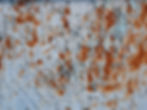The Benefits of Powder Coating for Iron Works
- braydenchole
- May 19, 2025
- 4 min read

Powder coating offers a durable and cost‑effective finish for architectural and decorative Iron Works, combining exceptional impact resistance, long‑term corrosion protection, and a broad spectrum of color and texture options. Palmetto Iron and Forge in Charlotte, NC, uses an electrostatic powder application and heat‑curing process to bond a thick, protective layer to custom railings, gates, and ornamental ironwork. This method not only extends service life in harsh environments but also cuts maintenance costs and reduces environmental impact compared to traditional liquid paints. Below, we explain how powder coating works, examine its major advantages and a few limitations, and answer common questions to help you make informed decisions for your next iron works project.
What Is Powder Coating?
Powder coating is an electrostatic application of fine polymer powders onto cleaned and primed iron surfaces, followed by thermal curing in an oven to create a continuous, bonded finish. Before coating, iron workpieces are degreased and treated with a primer that chemically prepares the surface and prevents corrosion beneath the finish. During application, charged powder particles adhere to the metal; once heated, they melt and cross‑link into a uniform, durable film. This process yields a finish that is thicker than conventional paint, eliminating runs or sags and producing a sealed barrier against wear and weather.
Key Benefits of Powder Coating for Iron Works
Exceptional Durability and Longevity
Because the powder is baked onto the iron, the resulting finish resists impact, abrasion, scratches, and chipping better than traditional liquid coatings. A standard paint system typically offers four thin layers, whereas powder coating delivers a thicker, monolithic layer that can perform reliably for decades in residential or commercial settings. For high‑traffic handrails and drive‑gates, this means fewer touch‑ups and longer intervals between refinishing.
Superior Corrosion Resistance
Powder coating forms an impermeable film that seals iron surfaces from moisture, oxygen, and corrosive chemicals primary drivers of rust formation. When combined with a zinc or epoxy primer, the system protects exterior Iron Works even in humid or coastal climates, reducing the risk of under‑film corrosion and premature coating failure. This barrier has helped preserve structural integrity and aesthetic quality for many years.
Rich Color and Finish Options
Modern powder coating offers hundreds of formulations, allowing matte, glossy, metallic, and textured finishes in virtually any standard RAL color. Because pigments are evenly dispersed at high concentration within the powder, coated surfaces maintain consistent color and resist fading under UV exposure. Custom color matching and specialty powders, such as wrinkle, hammertone, or candy finishes, enable personalized design without sacrificing performance.
Environmental and Health Advantages
Powder coating is a “dry” process that emits no volatile organic compounds (VOCs) or hazardous air pollutants during curing. Overspray powder can often be reclaimed and reused, reducing waste and material costs, especially in single‑color operations. The absence of solvents improves shop safety and lowers regulatory compliance burdens, making powder coating an environmentally responsible choice for Iron Works fabricators and property owners.
Cost‑Effectiveness and Maintenance Savings
Although initial powder coating prices may exceed those of standard paint, the long service life and minimal maintenance requirements typically result in lower lifecycle costs. Powder‑coated iron rarely needs sanding or spot‑repair; cleaning with mild detergent and water restores appearance without risk of solvent damage. Over time, the reduced need for recoating and repairs translates into tangible savings for homeowners and businesses alike.
Pros & Cons of Powder Coating for Iron Works
Pros | Cons |
Outstanding wear and scratch resistance | Higher upfront cost than liquid paint |
Excellent corrosion protection | Requires oven curing-size limits apply |
Wide array of finishes and colors | Touch‑ups can be challenging for small damages |
Low VOC emissions and overspray recovery | Not ideal for repairs on site without recoating |
Frequently Asked Questions
Is powder coating more durable than paint?
Yes. The baked‑on polymer film is harder and thicker than typical paint layers, offering superior resistance to chips, scratches, and fading.
Can I repair a damaged powder‑coated surface?
Minor scratches can be touched up with matching powder and a heat gun, but extensive damage often requires stripping and re‑coating the entire piece to maintain uniformity.
How long does powder coating last on exterior ironwork?
When properly applied over a primer, powder coating can protect ironwork for 10–20 years under normal environmental conditions, with even longer lifespans in mild climates.
Are there size limitations for powder coating?
Yes. Coated parts must fit inside a curing oven, which may limit the dimensions of large gates or railings. For oversized projects, components are often sectionalized for coating and assembled on-site.
How do I choose a finish that matches my design?
Consult a powder coating specialist for RAL or custom color charts. Many shops offer physical samples or color‑matching services to achieve exact design requirements.
Conclusion
Powder coating represents a reliable, long‑lasting finish for Iron Works, combining impact resistance, corrosion protection, diverse color options, and environmental benefits in one package. Whether for residential gates, decorative railings, or commercial storefronts, this process lowers maintenance demands and lifecycle costs while preserving the look of your investment. To bring these advantages to your next project, contact Palmetto Iron and Forge for a free in‑home consultation and estimate in Charlotte, NC. Let our five generations of blacksmithing knowledge provide modern powder‑coated Iron Works that stand the test of time.
Contact Palmetto Iron and Forge to schedule your consultation today!